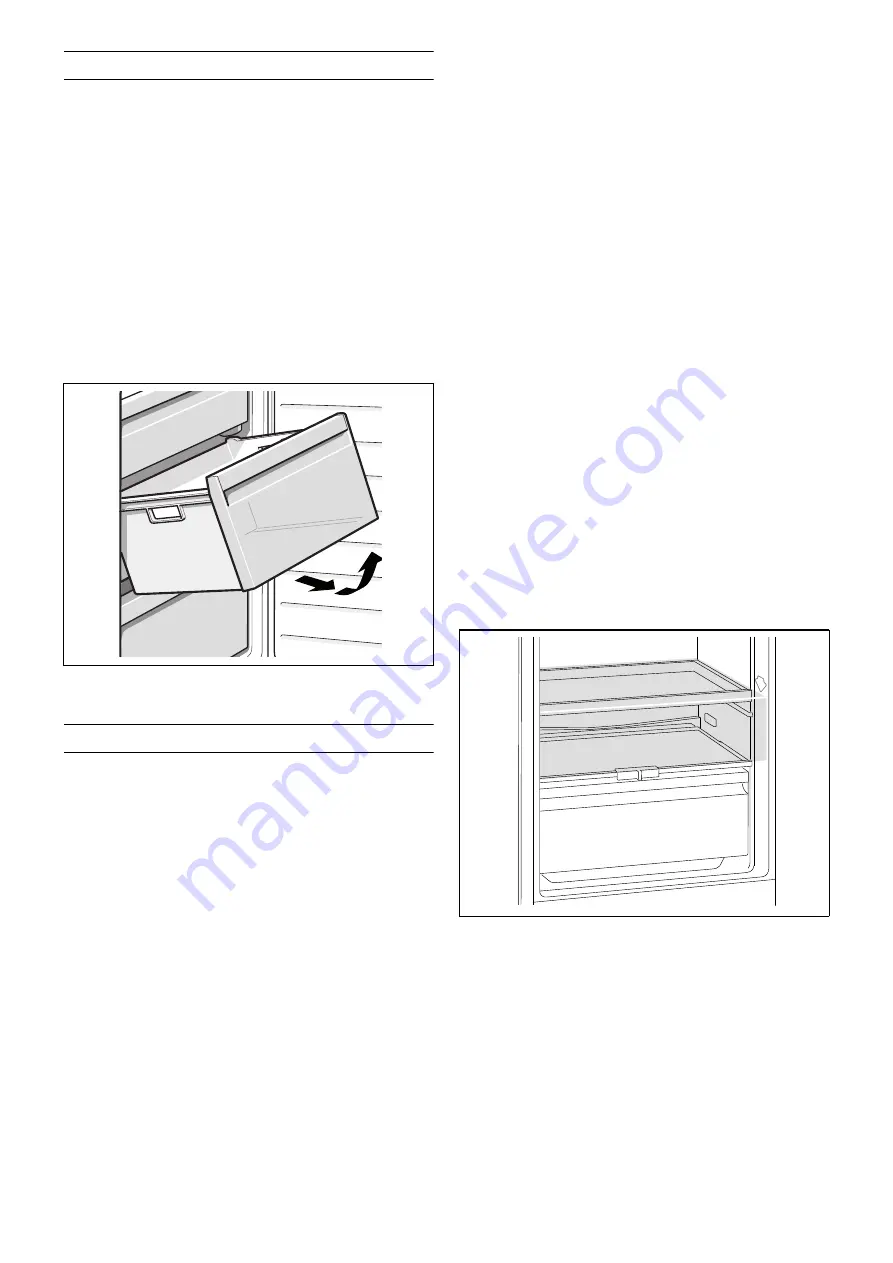
11
Usable capacity
Information on the usable capacity can be found
inside your appliance on the rating plate (see diagram
at chapter “Customer service”).
Fully utilising the freezer volume
The maximum amount of food can be placed
in the freezer by removing all fittings. The food can be
stacked directly on the shelves and in the bottom
of the freezer compartment.
Removing the fittings
Pull out the frozen food container all the way, lift at
the front and remove.
Refrigerator compartment
The refrigerator compartment is the ideal storage
location for meat, sausage, fish, dairy products, eggs,
ready meals and pastries.
Storing food
▯
Store fresh, undamaged food. The quality and
freshness will then be retained for longer.
▯
In the case of ready-made products and bottled
goods, observe the best-before date or use-by
date specified by the manufacturer.
▯
To retain aroma, colour and freshness, pack
or cover food well before placing in the
appliance. This will prevent the transfer
of flavours and the discolouration of plastic parts
in the refrigerator compartment.
▯
Allow warm food and drinks to cool down before
placing in the appliance.
Note
Avoid contact between food and rear panel.
Otherwise the air circulation will be impaired.
Food or packaging could freeze to the rear panel.
Note the chill zones
in the refrigerator compartment
The air circulation in the refrigerator compartment
creates different chill zones:
▯
Coldest zone is between the arrow stamped on
the side and the glass shelf situated below.
Note
Store perishable food (e.g. fish, sausage, meat)
in the coldest zone.
▯
Warmest zone is at the very top of the door.
Note
Store e.g. hard cheese and butter in the warmest
zone. Cheese can then continue to release its
flavour and the butter will still be easy to spread.









































